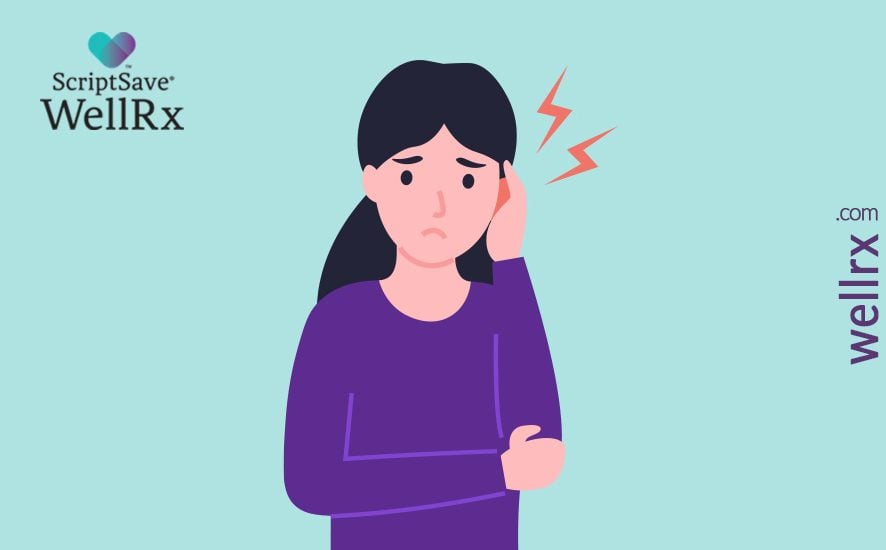There’s nothing like getting an ear infection as an adult to increase your empathy for a wailing, feverish baby tugging at her ear in the middle of the night. Ear infections are painful. However, not every ear infection necessitates an immediate trip to your healthcare provider.
Read on to learn more about ear infections; how and when you can safely troubleshoot at home; and when it’s time to see a medical provider.
To understand ear infections, it’s helpful to understand a little about basic ear anatomy. The human ear has three distinct sections — the outer ear, the middle ear, and the inner ear. When we talk about ear infections, we are typically referring to infections occurring in either the outer ear or the middle ear. These two sections are separated by the eardrum, a structure also known as the tympanic membrane.
An outer ear infection, also known as external otitis or swimmer’s ear, involves the ear canal. These infections are commonly caused by water — from a swimming pool, lake, ocean, or even just routine bathing — becoming trapped in the ear canal, creating a perfect habitat for bacteria. The ear canal often becomes inflamed, and you may experience itching, pain, decreased hearing, and even drainage from the ear.
An inner ear infection, or acute otitis media, refers to an infection in the space between the eardrum and the cochlea (inner ear). This space is normally drained by a thin tube, known as the eustachian tube, that connects the inner ear to the back of the mouth. When this tube gets inflamed, viruses or bacteria can get trapped in the middle ear, resulting in an infection. To diagnose a middle ear infection, a healthcare provider will look inside the ear canal to visualize the eardrum; if it is red, inflamed, and bulging with fluid, a middle ear infection is likely.
An ear infection can strike anyone at any time. However, children are more likely to contract middle ear infections, and adults are more likely to get outer ear infections.
Risk factors for ear infections include:
- Smoking or exposure to second-hand smoke
- The practice of “bottle propping“
- Not being fully vaccinated
- Poor hygiene
- Not being breastfed
- Sticking objects (such as a cotton swab) into the ear
- Being immunosuppressed
The location of an ear infection determines your clinician’s treatment approach.
The key to treating an outer ear infection is to make the ear canal less hospitable to bacteria. Generally, this is accomplished by drying out the canal. However, once an outer ear infection has progressed far enough that the canal is severely inflamed and pus-filled, antibiotic ear drops are typically necessary. These may or may not be combined with a steroid to help with swelling and pain. Pain control, using medications like ibuprofen or Tylenol, is important as well. Depending on the degree of inflammation, a medical provider may also flush out the ear to remove inflammatory debris.
The large majority of middle ear infections are caused by viruses that the body will naturally fight off within a few days, without antibiotics. For this reason, healthcare providers recommend a practice called “watchful waiting,” which involves treating ear pain symptoms with over-the-counter medications and delaying antibiotic treatment for at least 48 to 72 hours. If the infection is severe, or if you or your child are in certain high-risk groups, antibiotics may be prescribed sooner.
There are some home remedies for ear infections that may be useful to try before heading to a medical provider.
For an outer ear infection, some over-the-counter drop formulations marketed for “swimmer’s ear” have ingredients such as isopropyl alcohol and glycerin that can help dry out the ear canal, which may prevent it from becoming more severely infected. Home solutions using vinegar and rubbing alcohol may work as a substitute for over-the-counter drops; however, studies have not shown that drying remedies are more effective than prescription remedies for outer ear infections.
For middle ear infections, the watchful waiting approach is recommended by healthcare providers. In the meantime, you can use pain medications such as Tylenol and ibuprofen as home therapies to reduce the discomfort. Alternative therapy options, such as xylitol, phytotherapy, and probiotics, have shown variable results in clinical studies, and further research is needed for these treatment options to gain acceptance by medical authorities.
If despite your home therapy, you continue to have persistent ear pain, it is important to follow up with a medical provider to prevent future complications.
Reasons that should prompt you to bypass home therapy and see a healthcare provider urgently include:
- If you suspect there may be an alternate cause for the ear pain, such as a foreign body in the ear (children love to put strange things in their ears!) or barotrauma (if the pain started after a loud noise or pressure change)
- If you are feeling very ill or are unable to hold down food or water
- If you have other symptoms, such as fever for more than 3 days, a headache, neck pain, tooth pain, or sore throat
- If the area behind your ear (toward the back of your head) is tender or swollen
- If you are immunosuppressed
- If your pain is not controllable with over-the-counter medications
- If you have a blistering rash in or around your ear or on other areas of your face
- If you have a history of recurrent ear infections, or previous ear or sinus surgery
If your healthcare provider does prescribe you or your child medication for an ear infection, make sure to use ScriptSave WellRx to get the lowest price at the pharmacy.
Libby Pellegrini is a nationally certified physician assistant. She has worked in numerous healthcare settings, including the rural United States, an inner-city Level I trauma center, several suburban acute care centers, and a boutique, personalized medicine clinic in Southeast Asia. She graduated Magna Cum Laude from Northwestern University’s Medill School of Journalism.
References:
https://www.ncbi.nlm.nih.gov/books/NBK279353/
https://www.cdc.gov/nutrition/infantandtoddlernutrition/bottle-feeding/index.html
https://www.cdc.gov/healthywater/swimming/swimmers/rwi/ear-infections.html
https://www.wellrx.com/prescriptions/ibuprofen/
https://www.wellrx.com/prescriptions/tylenol/
https://www.cdc.gov/antibiotic-use/community/for-patients/common-illnesses/ear-infection.html
https://www.healthychildren.org/English/health-issues/conditions/ear-nose-throat/Pages/Ear-Infection-Information.aspx
https://uihc.org/health-topics/otitis-externa-get-rid-swimmers-ear
https://www.ncbi.nlm.nih.gov/books/NBK279352/
https://www.ncbi.nlm.nih.gov/pmc/articles/PMC4753897/
https://www.wellrx.com/health-conditions/about/health-condition/recurrent-ear-infections/vitamins-and-supplements/
https://www.wellrx.com/prescriptions/













 Store & manage your medication list
Store & manage your medication list Medication pricing updates
Medication pricing updates Pill & refill reminders
Pill & refill reminders Medication journal & mood log
Medication journal & mood log